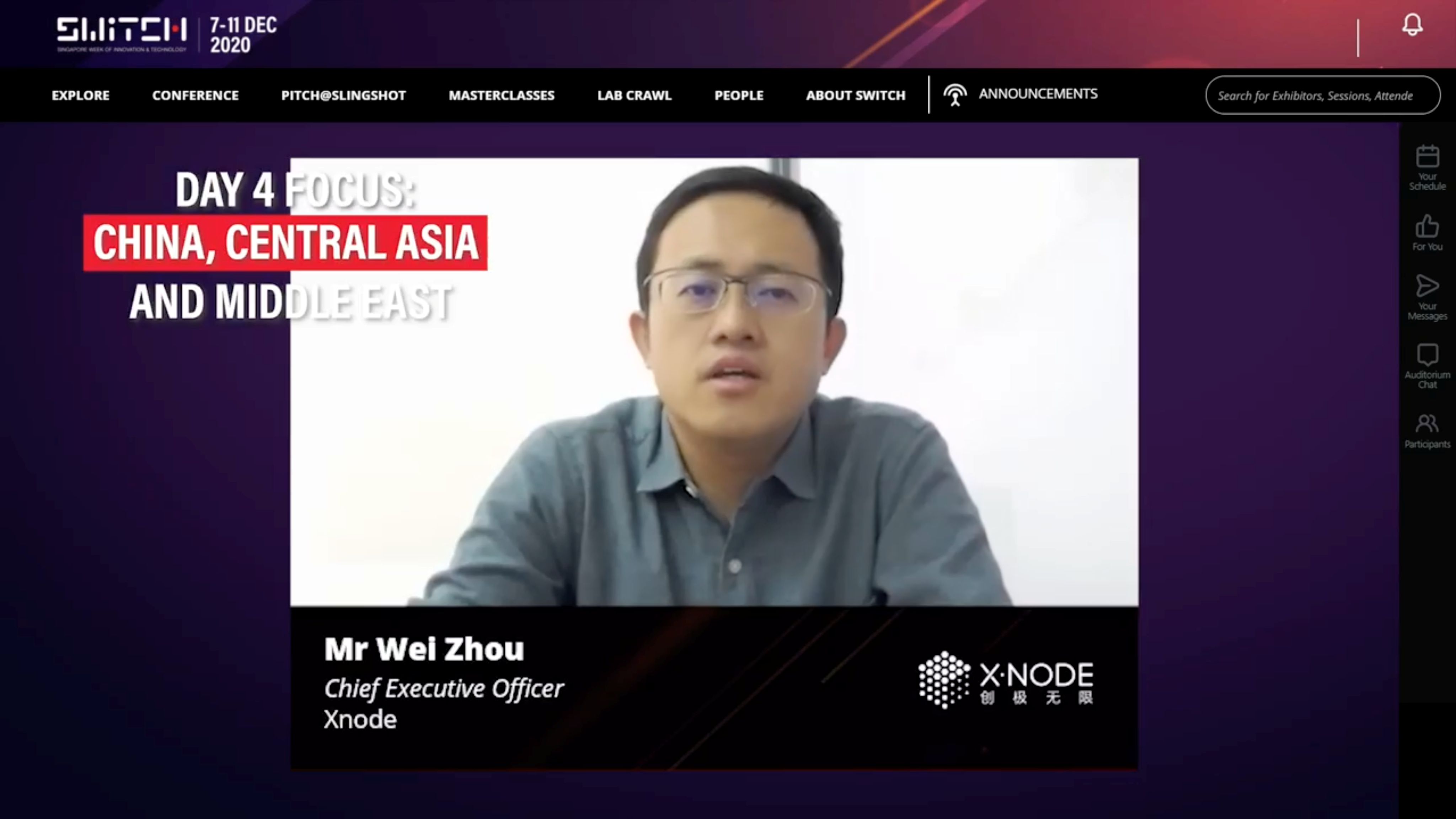Have you ever experienced difficulties with mobile payments in China? Cashless payment may be a breeze for locals, but it has been a challenge for many foreigners without a local bank account to authorise mobile payments. International credit cards are not widely accepted as well.
Enter Aleta Planet, a Singapore fintech start-up, with an innovative solution to address this pain point. Through a tie-up with UnionPay, its virtual card for QR code or contactless payment enables foreign visitors to make purchases anywhere in China, like a local. If you are one of the 145 million international visitors to China1, this can save you the hassle of using cash where digital payment is the norm.
China remains an attractive market for Singapore companies
COVID-19 may have put a dampener on the global economy and changed consumption patterns, but China remains poised to be one of the world’s key growth engines post-pandemic2.
With a population of 1.4 billion, and the value of its consumer market set to expand by about 12% every year to reach US$8.4 trillion (S$11.3 trillion) by 20223, China is an attractive market to fuel your business growth. The key is to find and fill a market gap like what Aleta Planet did.
At the Singapore Week of Innovation and TeCHnology (SWITCH) 2020, conference panellists weighed in on the growth opportunities for Singapore companies looking to venture into China:
-
Healthcare – China’s push to improve its healthcare capacity spells opportunities for healthcare and biomedical companies leveraging technology to deliver digital health and biomedical services, or create innovative healthcare products.
-
Smart cities – Companies with innovative tech-enabled urban and infrastructure solutions, such as Artificial Intelligence of Things (AIoT), big data and cloud computing, can find market demand in China’s push for smart cities development.
-
Digital solutions in the professional services sector – Singapore companies offering innovative digital business services and solutions, including but not limited to software-as-a-service (SaaS) platforms, can seize the increasing demand in a post-COVID-19 world.
Getting ready for the China market
Here are some key questions to consider as you prepare to venture to China.
1. What can your business offer to the China market?
SWITCH 2020 panellist Chen Kuan, Chief Executive and Founder of Infervision, has this piece of advice for entrepreneurs – decide on your value proposition to the China market. Here are some questions you can start with:
- What sets you apart from others?
- What problem would you like to solve?
- Which market gaps and pain points are you targeting?
For example, homegrown food manufacturing company SMC Food 21 recognised the emphasis on food safety in China and developed its proposition based on that. The company’s infant milk formula is the first from a foreign food company to meet China’s strict food safety standards – paving the way for it to meet consumer demand in the booming market.
2. Where should you land?
China is far from homogenous, with major differences even among Tier One cities that offer plenty of innovation opportunities:
- Beijing’s Zhongguancun Science Park (Z-park) is the place to be for IT startups;
- Shanghai is a key financial centre attracting fintech startups and international players;
- Guangzhou is a major transport hub and key gateway city in the Guangdong-Hongkong-Macao Greater Bay Area (GBA);
- Shenzhen, also a core city in the GBA, is renowned for manufacturing and hardware innovation

A view of the Chinese port of Nansha in Guangdong province.
Emerging first-tier cities such as Chengdu, Chongqing, Hangzhou, Suzhou, Nanjing offer many opportunities too, albeit in different sectors. It is important to match your business needs with the market gaps and conditions when deciding where to land.
Ednovation is a Singapore education services provider which chose Chongqing as its primary market for its preschools in 2007. Compared to the more competitive coastal cities, there was higher unmet demand for premium preschools in Chongqing then. The company now operates more than 20 preschools across China.
3. Are you up for the intense competition?
Zhou Wei, Founder and CEO of Shanghai-based startup and corporate accelerator XNode, cautioned against underestimating the competition in China. He advised companies to be prepared for head-to-head competition with domestic and other foreign players, not just for consumer dollars, but also for talent and capital. In particular, newer brands in China might find it challenging to hire top talents locally.

One strategy is to build partnerships with local companies. For example, BreadTalk Group, Song Fa and Shenzhen’s Pindao Food & Beverage Management Company joined hands to bring the highly popular bak kut teh to consumers in South China4. The tripartite alliance leverages Pindao’s resourcefulness in securing strategic outlet locations and developing talent pipelines, giving both Singapore companies a leg up in the highly competitive food scene in China.
4. Do you have a deep understanding of the local market?
XNode, which has helped Singapore companies launch and accelerate in China, advised that “localisation is not just about hiring local employees and translating website and product information”. You need to have a deep understanding of consumer preferences, adjust your product logic or business model to ensure product-market fit5.
From tweaking your menus to suit local palates, to modifying your mobile apps to fit the numerous app stores in China, be prepared to customise your business model to suit local practices and standards. Given China’s unique digital landscape, adapting your technical configurations to the local context is a must.
5. What is your business growth plan?
Venturing to China takes patience. No matter how established you are in the rest of the world, it takes time for your business to be recognised, accepted and take root in China. As Luuk Eliens, Chief Commercial Officer at XNode, shared at SWITCH, it takes at least a year to build a business in Shanghai. However, once you have successfully established your brand, your pace of growth can accelerate. Therefore, it helps to arm yourself with a long-term expansion plan, such as expanding into different cities and regions of China, or deepening your roots in one core market.

6. Are you prepared to be flexible?
Zhou Wei added a note of caution that Chinese innovators do not buy into rigorous innovation methodology and may take pragmatic shortcuts in the results-driven environment. Wang Wei, AppsFlyer’s Country Manager in Greater China and SWITCH panellist, credits his company’s success in China to three factors – product-market fit, entering China at the right timing, and the ability to strike a balance between a focused mindset and flexibility when navigating the China market.
If you plan to venture into different regions, pay attention to and be prepared to work within local regulations that vary across jurisdictions.
7. Do you have the right business partners?
Having a trusted in-market business partner or consultant will help to connect you with the relevant local authorities and right partners.
Businesses with a focus on technology and innovation can tap the Global Innovation Alliance (GIA), a joint initiative by Enterprise Singapore and the Singapore Economic Development Board. The Alliance will provide support for firms to understand the market, find their product-market fit, receive mentorship opportunities, and visit potential clients and partners in China. Within China, our in-market partners are DayDayUp in Beijing, and XNode in Shanghai and Shenzhen .

Singapore-based startups or SMEs keen to venture into China can apply for the immersive China-Singapore Innovation Launchpad Acceleration Programme as part of GIA.
(Photo: XNode)
Looking to get started on doing business in China? Check out our Market Guide and Global Talent Mobility Guide to learn more about the nuts and bolts of setting up shop in Asia’s largest economy!

